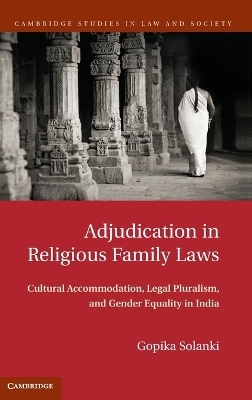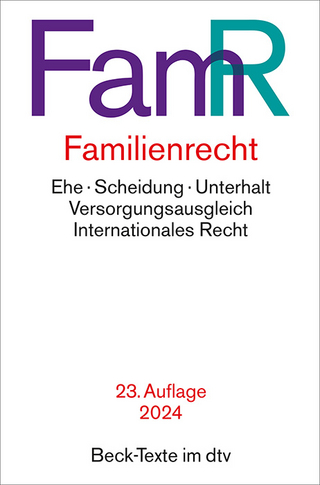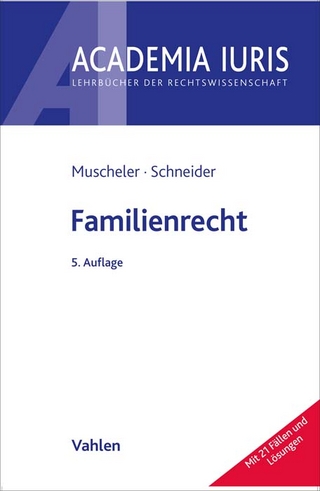
Adjudication in Religious Family Laws
Cultural Accommodation, Legal Pluralism, and Gender Equality in India
Seiten
2011
Cambridge University Press (Verlag)
978-1-107-00610-2 (ISBN)
Cambridge University Press (Verlag)
978-1-107-00610-2 (ISBN)
This book argues that the shared adjudication model in which the state splits its adjudicative authority with religious groups and civic bodies in the regulation of marriage can potentially balance cultural rights and gender equality.
This book argues that the shared adjudication model in which the state splits its adjudicative authority with religious groups and other societal sources in the regulation of marriage can potentially balance cultural rights and gender equality. In this model the civic and religious sources of legal authority construct, transmit and communicate heterogeneous notions of the conjugal family, gender relations and religious membership within the interstices of state and society. In so doing, they fracture the homogenized religious identities grounded in hierarchical gender relations within the conjugal family. The shared adjudication model facilitates diversity as it allows the construction of hybrid religious identities, creates fissures in ossified group boundaries and provides institutional spaces for ongoing intersocietal dialogue. This pluralized legal sphere, governed by ideologically diverse legal actors, can thus increase gender equality and individual and collective legal mobilization by women effects institutional change.
This book argues that the shared adjudication model in which the state splits its adjudicative authority with religious groups and other societal sources in the regulation of marriage can potentially balance cultural rights and gender equality. In this model the civic and religious sources of legal authority construct, transmit and communicate heterogeneous notions of the conjugal family, gender relations and religious membership within the interstices of state and society. In so doing, they fracture the homogenized religious identities grounded in hierarchical gender relations within the conjugal family. The shared adjudication model facilitates diversity as it allows the construction of hybrid religious identities, creates fissures in ossified group boundaries and provides institutional spaces for ongoing intersocietal dialogue. This pluralized legal sphere, governed by ideologically diverse legal actors, can thus increase gender equality and individual and collective legal mobilization by women effects institutional change.
Gopika Solanki is Assistant Professor of Political Science at Carleton University in Canada. She is co-author of Journey from Violence to Crime: A Study of Domestic Violence in the City of Mumbai. She has contributed articles to various journals and books.
1. Introduction; 2. The shared adjudication model: theoretical framework and arguments; 3. State law and the adjudication process: marriage, divorce, and the conjugal family in Hindu and Muslim personal law; 4. Making and unmaking the conjugal family: the administration of Hindu law in society; 5. Juristic diversity, contestations over 'Islamic law' and women's rights: regulation of matrimonial matters in Muslim personal law; 6. Conclusion.
| Reihe/Serie | Cambridge Studies in Law and Society |
|---|---|
| Zusatzinfo | 4 Tables, unspecified; 4 Line drawings, unspecified |
| Verlagsort | Cambridge |
| Sprache | englisch |
| Maße | 160 x 235 mm |
| Gewicht | 710 g |
| Themenwelt | Recht / Steuern ► EU / Internationales Recht |
| Recht / Steuern ► Privatrecht / Bürgerliches Recht ► Familienrecht | |
| ISBN-10 | 1-107-00610-4 / 1107006104 |
| ISBN-13 | 978-1-107-00610-2 / 9781107006102 |
| Zustand | Neuware |
| Haben Sie eine Frage zum Produkt? |
Mehr entdecken
aus dem Bereich
aus dem Bereich
Ehe, Scheidung, Unterhalt, Versorgungsausgleich, Internationales …
Buch | Softcover (2024)
dtv Verlagsgesellschaft
18,90 €


